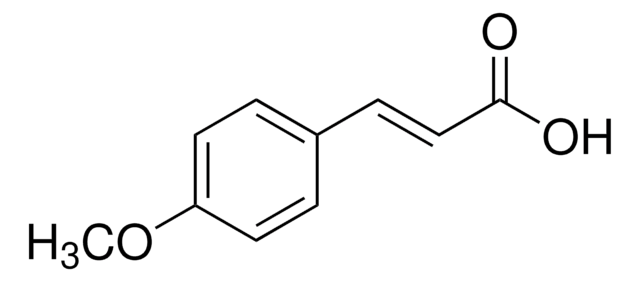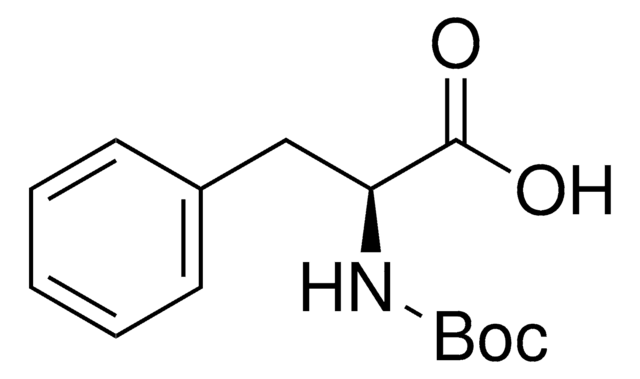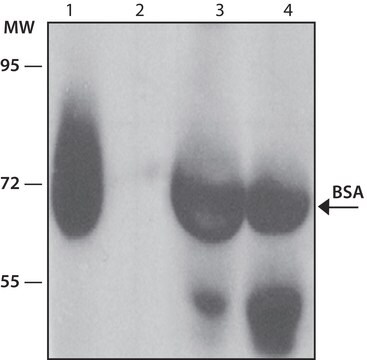おすすめの製品
由来生物
mouse
品質水準
抗体製品の状態
purified immunoglobulin
抗体製品タイプ
primary antibodies
クローン
20, monoclonal
化学種の反応性
human
濃度
1.0 mg/mL
テクニック
immunocytochemistry: suitable
western blot: suitable
アイソタイプ
IgG1κ
輸送温度
wet ice
ターゲットの翻訳後修飾
unmodified
詳細
ストレプトアビジン結合ペプチドタグは、発現ベクターに挿入することで、リコンビナントタンパク質の検出や精製を容易にする、有用で汎用性の高いペプチドです。SBPタグの配列は38アミノ酸長で、ストレプトアビジンに対してナノモルスケールの結合親和性があり、平衡定数は2.5 nMです。
特異性
SBPタグを発現する細胞との反応が示されています。
この抗体はSBPタグを認識します。
免疫原
SBPタグに相当する直鎖ペプチド
エピトープ:不明
アプリケーション
免疫蛍光染色: 独立したラボが前回のロットをIFで使用しました。(Hudson, D., et al. (2008). MBC. 19(7):3070-3079.)
研究カテゴリー
エピトープタグおよび一般用途
エピトープタグおよび一般用途
研究サブカテゴリー
エピトープタグ
エピトープタグ
品質
pTrAP-GFPトランスフェクトHek293ライセートのウェスタンブロッティングで評価されています。
ウェスタンブロッティング:0.1 g/mLで使用、10 µgのpTrAP-GFPトランスフェクトHek293ライセート中のSBPタグを検出できます。
ウェスタンブロッティング:0.1 g/mLで使用、10 µgのpTrAP-GFPトランスフェクトHek293ライセート中のSBPタグを検出できます。
ターゲットの説明
このタンパク質は、ヒスチジンタグ、Sタグ、ストレプトアビジン結合ペプチド(SBP)タグおよびGFPを含めたpTrAP-GFPプラスミドで発現します。発現タンパク質は約37 kDaです。
物理的形状
フォーマット:精製
精製プロテインG
精製マウスモノクローナルIgG1κ抗体、0.1 M Tris-グリシンバッファー(pH 7.4)+150 mM NaCl溶液、0.05%アジ化ナトリウム含有
保管および安定性
2~8°Cで受領日から1年間安定です。
アナリシスノート
コントロール
pTrAP-GFPトランスフェクトHek293ライセート
pTrAP-GFPトランスフェクトHek293ライセート
免責事項
メルクのカタログまたは製品に添付されたメルクのその他の文書に記載されていない場合、メルクの製品は研究用途のみを目的としているため、他のいかなる目的にも使用することはできません。このような目的としては、未承認の商業用途、in vitroの診断用途、ex vivoあるいはin vivoの治療用途、またはヒトあるいは動物へのあらゆる種類の消費あるいは適用などがありますが、これらに限定されません。
適切な製品が見つかりませんか。
製品選択ツール.をお試しください
保管分類コード
12 - Non Combustible Liquids
WGK
WGK 1
引火点(°F)
Not applicable
引火点(℃)
Not applicable
適用法令
試験研究用途を考慮した関連法令を主に挙げております。化学物質以外については、一部の情報のみ提供しています。 製品を安全かつ合法的に使用することは、使用者の義務です。最新情報により修正される場合があります。WEBの反映には時間を要することがあるため、適宜SDSをご参照ください。
Jan Code
MAB10764:
試験成績書(COA)
製品のロット番号・バッチ番号を入力して、試験成績書(COA) を検索できます。ロット番号・バッチ番号は、製品ラベルに「Lot」または「Batch」に続いて記載されています。
Ashley J Evans et al.
Cell reports, 19(12), 2613-2626 (2017-06-22)
Ionotropic glutamate receptor (iGluR) trafficking and function underpin excitatory synaptic transmission and plasticity and shape neuronal networks. It is well established that the transcription, translation, and endocytosis/recycling of iGluRs are all regulated by neuronal activity, but much less is known
Damien F Hudson et al.
Molecular biology of the cell, 19(7), 3070-3079 (2008-05-16)
We engineered mutants into residues of SMC2 to dissect the role of ATPase function in the condensin complex. These residues are predicted to be involved in ATP binding or hydrolysis and in the Q-loop, which is thought to act as
Gaelle Boncompain et al.
Methods in molecular biology (Clifton, N.J.), 1174, 211-223 (2014-06-21)
In mammalian cells, secretory proteins are transported to their destination compartment via the secretory pathway. Cargos start their journey in the endoplasmic reticulum and then reach the Golgi complex where they are processed and sorted to be delivered to their
Petr Lapcik et al.
Cellular & molecular biology letters, 28(1), 68-68 (2023-08-25)
Desmocollin-1 (DSC1) is a desmosomal transmembrane glycoprotein that maintains cell-to-cell adhesion. DSC1 was previously associated with lymph node metastasis of luminal A breast tumors and was found to increase migration and invasion of MCF7 cells in vitro. Therefore, we focused
Lucia Janacova et al.
Scientific reports, 13(1), 1285-1285 (2023-01-24)
Catechol-O-methyl transferase (COMT) is involved in detoxification of catechol estrogens, playing cancer-protective role in cells producing or utilizing estrogen. Moreover, COMT suppressed migration potential of breast cancer (BC) cells. To delineate COMT role in metastasis of estrogen receptor (ER) dependent
ライフサイエンス、有機合成、材料科学、クロマトグラフィー、分析など、あらゆる分野の研究に経験のあるメンバーがおります。.
製品に関するお問い合わせはこちら(テクニカルサービス)







